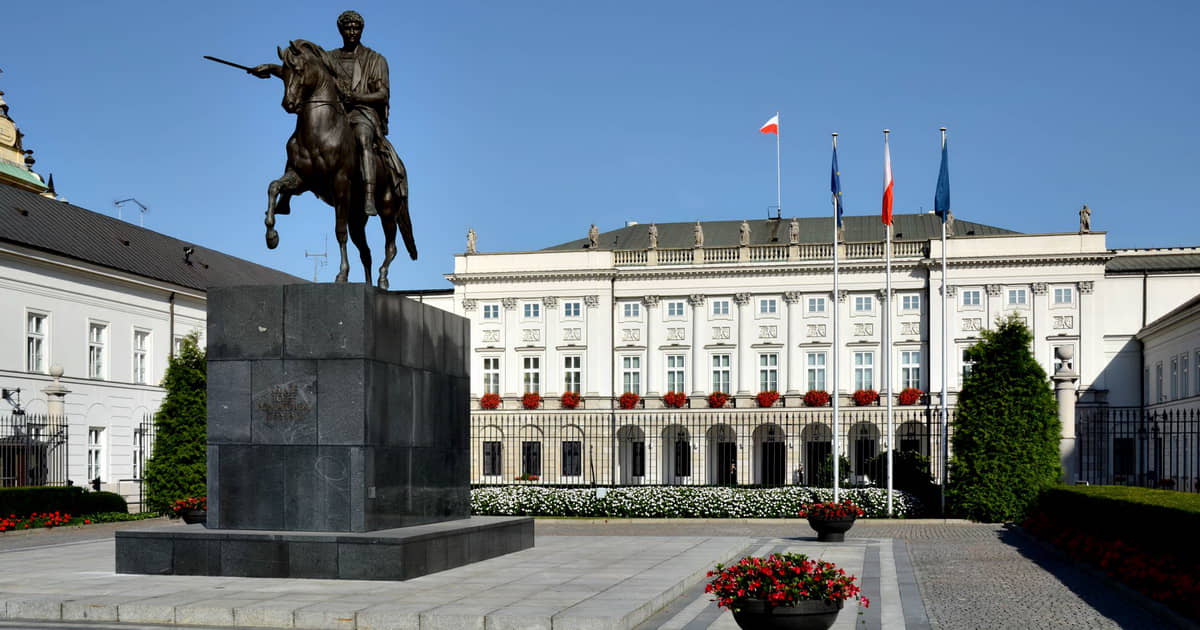Who сonsidered the main contenders for Poland's presidency and who is the dark horse?

Polish politicians convince us that the presidential campaign is yet to officially begin and is expected to kick off around January or February 2025. The race, however, is already well underway, with clear indications of who will compete for the presidential seat. The main contenders in the presidential election will likely be Rafal Trzaskowski from the Civic Coalition (led by Donald Tusk) and Karol Nawrocki, a formally non-partisan candidate but effectively nominated and supported by the opposition party Law and Justice (PiS).
Read more about who else will compete for the presidency and what is known about the candidates in the article by by Michal Kacewicz, a Belsat publicist and journalist - Four contenders for Andrzej Duda's position: who will run for Poland's presidency. There is a myth in Polish politics: the position of the capital's mayor serves as an excellent springboard to the presidency. This belief is based on the example of Lech Kaczynski, who became Poland's president after serving as Warsaw's mayor.
Advertisement: Rafal Trzaskowski has long been seen as ready to run for president, having gained considerable political experience. In 2020, he participated in the so-called pandemic presidential elections, losing to Andrzej Duda in the second round.
Despite the defeat, it was an excellent learning experience in campaign management. Trzaskowski faced the full administrative machinery of the Law and Justice party (PiS), the incumbent president with solid ratings, government-controlled media used mercilessly by the PiS government, as well as limited time and the challenges of the pandemic. Today, Trzaskowski enters the elections in a better, and arguably more comfortable, position with a strong approval rating.
He also has the backing of the ruling party. Additionally, a strong dislike for the recently ousted PiS among a significant portion of the public works in Trzaskowski's favour. According to a poll conducted by Opinia24 on 25 November, 41% of voters would currently support Trzaskowski.
In contrast to the Civic Coalition, Law and Justice did not hold primaries. Party leader Jaroslaw Kaczynski chose Karol Nawrocki as the candidate. Why?
Because research indicates that a right-wing candidate without direct associations with PiS's governance stands a better chance. Due to numerous corruption scandals and controversies, close ties to PiS are now seen as a liability. Hence, Nawrocki has been officially presented as a "people's" candidate rather than a party nominee.
Additionally, among Kaczynski's circle and right-wing supporters, the legend of Andrzej Duda still resonates. Before 2015, the current president was not widely known. Similarly, Nawrocki, a former director of the Museum of the Second World War in Gdansk and the current head of the Institute of National Remembrance (IPN), is expected to become a kind of Duda 2.0.
However, unlike Duda, who had some presence in major politics before 2015, Nawrocki lacks any campaign experience. Furthermore, PiS reportedly lacks sufficient funds. During the campaign, Nawrocki is likely to adopt a tougher stance on Ukraine.
This is tied to his need to win over nationalist voters, particularly supporters of the Confederation party, whose backing will be crucial in a potential second round. Apart from these two main contenders, other candidates include the current Marshal of the Sejm, Szymon Holownia (whose party Poland 2050 is part of the ruling coalition alongside the Civic Coalition and The Left), and Slawomir Mentzen, leader of the anti-Ukrainian Confederation party. At 38, Slawomir Mentzen, a businessman and tax consultant, is considered the dark horse of the upcoming elections.
He represents a contemporary trend in populism, akin to Donald Trump or Calin Georgescu in Romania.
If you notice an error, select the required text and press Ctrl + Enter to report it to the editors.